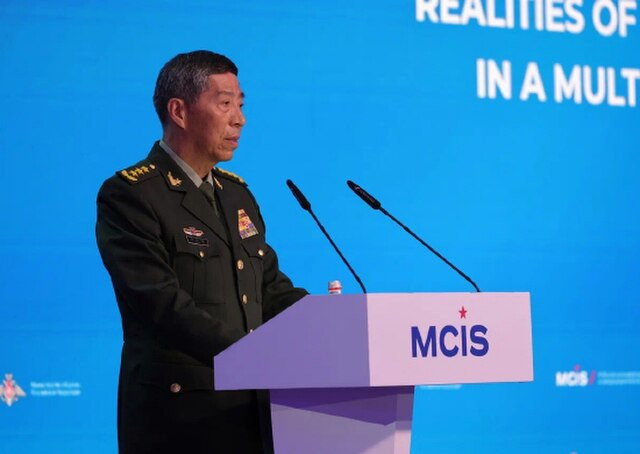In a series of mysterious absences that have sent ripples through diplomatic circles, China's Defence Minister, General Li Shangfu, has become the latest high-ranking official to vanish from the public eye. This development follows closely on the heels of the disappearance of China's Foreign Minister, Qin Gang, and two key generals overseeing the nation's nuclear and missile arsenal.
General Li's last public appearance was on August 29, where he delivered a keynote address at the third China-Africa Peace and Security Forum in Beijing. Since then, the Defence Minister's conspicuous absence from public events has fueled speculations about his whereabouts and the internal dynamics of the Chinese leadership.
Rahm Emanuel, the US envoy to Japan, took to social media to comment on the situation, drawing a parallel to Agatha Christie's mystery novel, "And Then There Were None." Emanuel tweeted, "President Xi's cabinet lineup is now resembling Agatha Christie's novel. First, Foreign Minister Qin Gang goes missing, then the rocket force commanders, and now Defence Minister Li Shangfu hasn't been seen in public for two weeks."
The backdrop to these disappearances is a series of significant reshuffles initiated by President Xi Jinping. Notably, Qin Gang, a close confidante of Xi, had been absent from the public eye for over three weeks in July, amidst rumors of an extramarital affair with a television presenter. His predecessor, Wang Yi, subsequently assumed the senior role. Similarly, two generals from the People's Liberation Army's (PLA) rocket force unit, Li Yuchao and Liu Guangbin, have been out of the public view for months.
The South China Morning Post highlighted that these reshuffles might be part of a broader anti-corruption drive. The PLA's Equipment Development Department recently launched an investigation into corruption cases linked to hardware procurement from the past five years. Among the concerns raised were leaks related to projects and army units and alleged favoritism in securing bids for specific companies.
China's leadership has historically maintained a veil of secrecy around its internal workings. However, the recent spate of disappearances has intensified global scrutiny. Michael Schuman, a Beijing-based author, remarked in The Atlantic, "China's communist regime has always been opaque. But the more China's global power rises, the more problematic the Communist Party's secrecy becomes."
As the world watches closely, the question remains: Are these absences indicative of internal power struggles, or are they part of a broader strategy by the Chinese leadership? The international community awaits clarity, even as the narrative of China's leadership continues to be shrouded in mystery.





